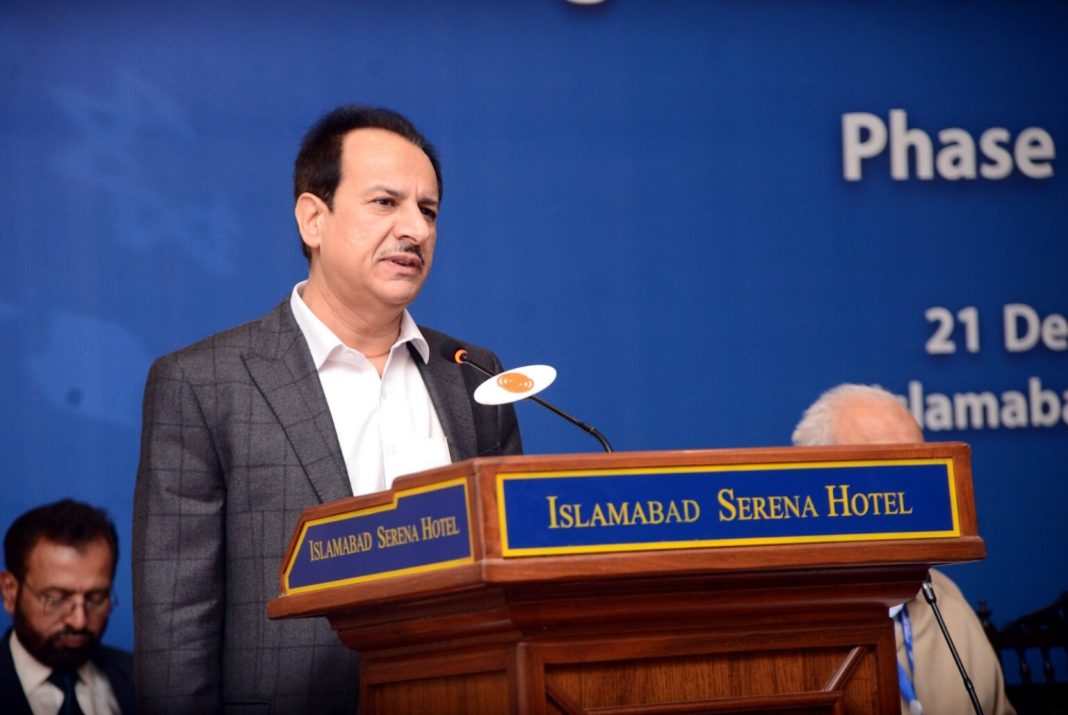By Ali Imran
ISLAMABAD: Caretaker Minister for National Health Services, Regulations and Coordination Dr Nadeem Jan on Thursday called for galvanizing efforts to deal with the critical issue of addressing and containing antimicrobial resistance in Pakistan. Addressing a closing ceremony of the Fleming Fund Country Grant Pakistan, the minister called for a narrative on antimicrobial resistance which was digestive and palatable to political leaders, health professionals, and communities.
Dr Nadeem said there was a need for revising the National Action Plan on AMR. He added that all stakeholders should be consulted for revising the plan. He requested commitment of all stakeholders in updating the national plan on AMR. The minister suggested forming a high-level taskforce on AMR, which should serve as the coordination platform for efforts and initiatives on addressing antimicrobial resistance. He said the most crucial factor in containing AMR was the change in behaviour towards the use of antibiotics. In this regard, he recommended a comprehensive communication strategy on AMR. The Fleming Fund is a UK-funded programme focusing on controlling antimicrobial resistance (AMR) in more than 25 countries, including Pakistan, across Africa and Asia. Managed by the UK Department of Health and Social Care (DHSC), the Fleming Fund supports governments through country and regional grants and fellowship schemes to implement AMR strategies globally, especially in low-income countries where AMR has a disproportionate impact. Since 2019, Pakistan has come a long way in terms of addressing AMR under the One Health approach.
The Fleming Fund has actively supported the initiatives to implement Pakistan’s National Action Plan on AMR. This cooperation at the federal and provincial levels will continue in the second phase of the grant. Dr Qadeer Ahsan, Team Lead of the Fleming Fund, gave an overview of the grant’s four-year work in Pakistan. He said the silent threat of AMR should be understood at all levels from the policymakers to the people.
He added that the people needed to know how antimicrobial resistance was adversely impacting humans, animals, and the environment. In the phase II, he said the grant in collaboration with the provinces would work on developing legislation on addressing AMR. Dr Arif Azad said AMR was a real, local, and global threat. However, he added that it was preventable through urgent actions and concerted efforts by political leadership, healthcare leaders in human and animal health, laboratory and microbiological and environmental experts and policymakers and media. Dr Arif termed the education of health workforce crucial for addressing AMR. A documentary, the Fleming Fund and the fight against AMR in Pakistan was screened at ceremony. The ceremony was also addressed by the representatives from the office of Animal Husbandry Commissioner, DG Health Services Khyber Pakhtunkhwa, DG Health Services Sindh, National Institutes of Health (NIH), National Veterinary Laboratory (NIH), National Reference Laboratory Poultry Diseases (NRLPD), and Liverpool School of Tropical Medicine (LTSM).



